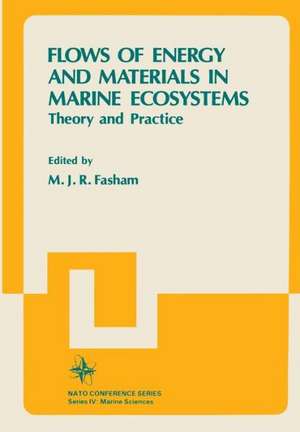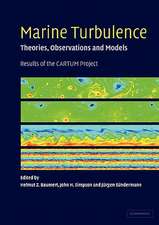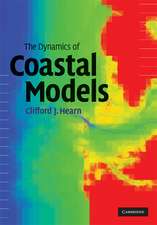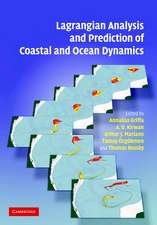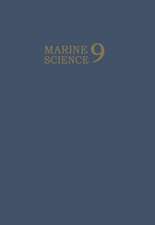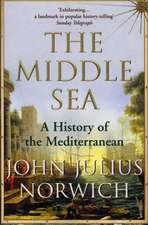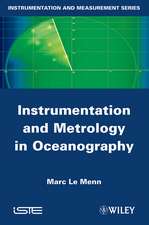Flows of Energy and Materials in Marine Ecosystems: Theory and Practice: Nato Conference Series, cartea 13
Autor M. J. R. Fashamen Limba Engleză Paperback – 15 iun 2012
Din seria Nato Conference Series
- 5%
 Preț: 389.56 lei
Preț: 389.56 lei - 15%
 Preț: 705.99 lei
Preț: 705.99 lei - 15%
 Preț: 661.32 lei
Preț: 661.32 lei -
 Preț: 389.49 lei
Preț: 389.49 lei -
 Preț: 412.95 lei
Preț: 412.95 lei - 18%
 Preț: 1241.42 lei
Preț: 1241.42 lei -
 Preț: 389.70 lei
Preț: 389.70 lei -
 Preț: 409.69 lei
Preț: 409.69 lei - 20%
 Preț: 585.73 lei
Preț: 585.73 lei -
 Preț: 412.57 lei
Preț: 412.57 lei -
 Preț: 396.78 lei
Preț: 396.78 lei -
 Preț: 399.12 lei
Preț: 399.12 lei -
 Preț: 415.29 lei
Preț: 415.29 lei -
 Preț: 397.97 lei
Preț: 397.97 lei -
 Preț: 396.62 lei
Preț: 396.62 lei -
 Preț: 390.08 lei
Preț: 390.08 lei - 5%
 Preț: 378.07 lei
Preț: 378.07 lei - 18%
 Preț: 1235.57 lei
Preț: 1235.57 lei - 15%
 Preț: 495.26 lei
Preț: 495.26 lei -
 Preț: 392.37 lei
Preț: 392.37 lei -
 Preț: 413.15 lei
Preț: 413.15 lei -
 Preț: 404.67 lei
Preț: 404.67 lei -
 Preț: 396.40 lei
Preț: 396.40 lei - 15%
 Preț: 662.16 lei
Preț: 662.16 lei - 5%
 Preț: 722.69 lei
Preț: 722.69 lei - 15%
 Preț: 666.41 lei
Preț: 666.41 lei -
 Preț: 382.75 lei
Preț: 382.75 lei - 18%
 Preț: 822.01 lei
Preț: 822.01 lei -
 Preț: 401.57 lei
Preț: 401.57 lei -
 Preț: 403.91 lei
Preț: 403.91 lei -
 Preț: 404.67 lei
Preț: 404.67 lei -
 Preț: 403.15 lei
Preț: 403.15 lei -
 Preț: 411.42 lei
Preț: 411.42 lei -
 Preț: 440.71 lei
Preț: 440.71 lei -
 Preț: 408.63 lei
Preț: 408.63 lei - 15%
 Preț: 647.27 lei
Preț: 647.27 lei -
 Preț: 393.74 lei
Preț: 393.74 lei -
 Preț: 392.97 lei
Preț: 392.97 lei - 18%
 Preț: 1234.62 lei
Preț: 1234.62 lei -
 Preț: 412.95 lei
Preț: 412.95 lei -
 Preț: 390.46 lei
Preț: 390.46 lei -
 Preț: 405.66 lei
Preț: 405.66 lei - 18%
 Preț: 1242.03 lei
Preț: 1242.03 lei - 18%
 Preț: 1225.62 lei
Preț: 1225.62 lei - 15%
 Preț: 679.00 lei
Preț: 679.00 lei -
 Preț: 401.03 lei
Preț: 401.03 lei -
 Preț: 399.12 lei
Preț: 399.12 lei -
 Preț: 413.15 lei
Preț: 413.15 lei
Preț: 667.54 lei
Preț vechi: 785.34 lei
-15% Nou
Puncte Express: 1001
Preț estimativ în valută:
127.75€ • 132.88$ • 105.46£
127.75€ • 132.88$ • 105.46£
Carte tipărită la comandă
Livrare economică 12-26 aprilie
Preluare comenzi: 021 569.72.76
Specificații
ISBN-13: 9781475703894
ISBN-10: 1475703899
Pagini: 748
Ilustrații: 744 p. 46 illus.
Dimensiuni: 170 x 244 x 39 mm
Greutate: 1.17 kg
Ediția:Softcover reprint of the original 1st ed. 1984
Editura: Springer Us
Colecția Springer
Seriile Nato Conference Series, IV Marine Sciences
Locul publicării:New York, NY, United States
ISBN-10: 1475703899
Pagini: 748
Ilustrații: 744 p. 46 illus.
Dimensiuni: 170 x 244 x 39 mm
Greutate: 1.17 kg
Ediția:Softcover reprint of the original 1st ed. 1984
Editura: Springer Us
Colecția Springer
Seriile Nato Conference Series, IV Marine Sciences
Locul publicării:New York, NY, United States
Public țintă
ResearchCuprins
One — Invited Papers.- The Importance of Measuring Fluxes in Marine Ecosystems.- Community Measures of Marine Food Networks and their Possible Applications.- Thermodynamics of the Pelagic Ecosystem: Elementary Closure Conditions for Biological Production in the Open Ocean.- The Structure of Aquatic Ecosystems and its Dependency on Environmental Conditions.- Eutrophication of a Coastal Marine Ecosystem — An Experimental Study Using the MERL Microcosms.- Oceanic Nutrient Cycles.- State-of-the-Art in the Measurement of Primary Production.- Functional Types of Marine Planktonic Primary Producers and their Relative Significance in the Food Web.- Measuring the Metabolism of the Benthic Ecosystem.- The Measurement of the Enthalpy of Metabolism of Marine Organisms.- Bacterial Production in the Marine Food Chain: The Emperor’s New Suit of Clothes?.- Suspended Marine Bacteria as a Food Source.- The Biological Role of Detritus in the Marine Environment.- The Cycling of Organic Matter by Bacterioplankton in Pelagic Marine Ecosystems: Microenvironmental Considerations.- An Overview of Secondary Production in Pelagic Ecosystems.- The Quantitative Significance of Gelatinous Zooplankton as Pelagic Consumers.- Fish Production in Open Ocean Ecosystems.- Ecological Efficiency and Activity Metabolism.- Detrital Organic Fluxes Through Pelagic Ecosystems.- The Supply of Food to the Benthos.- Coupling the Sub-Systems — the Baltic Sea as a Case Study.- On the Relation of Primary Production to Grazing during the Fladen Ground Experiment 1976.- Two — Working Group Reports.- Studies on Marine Autotrophs: Recommendations for the 1980s.- Respiration.- Nutrient Cycling in Estuarine and Coastal Marine Ecosystems.- Excretion and Mineralisation Processes in the Open Sea.- Herbivory.-Detritivory.- Carnivory.- The Role of Free Bacteria and Bactivory.- Participants.
